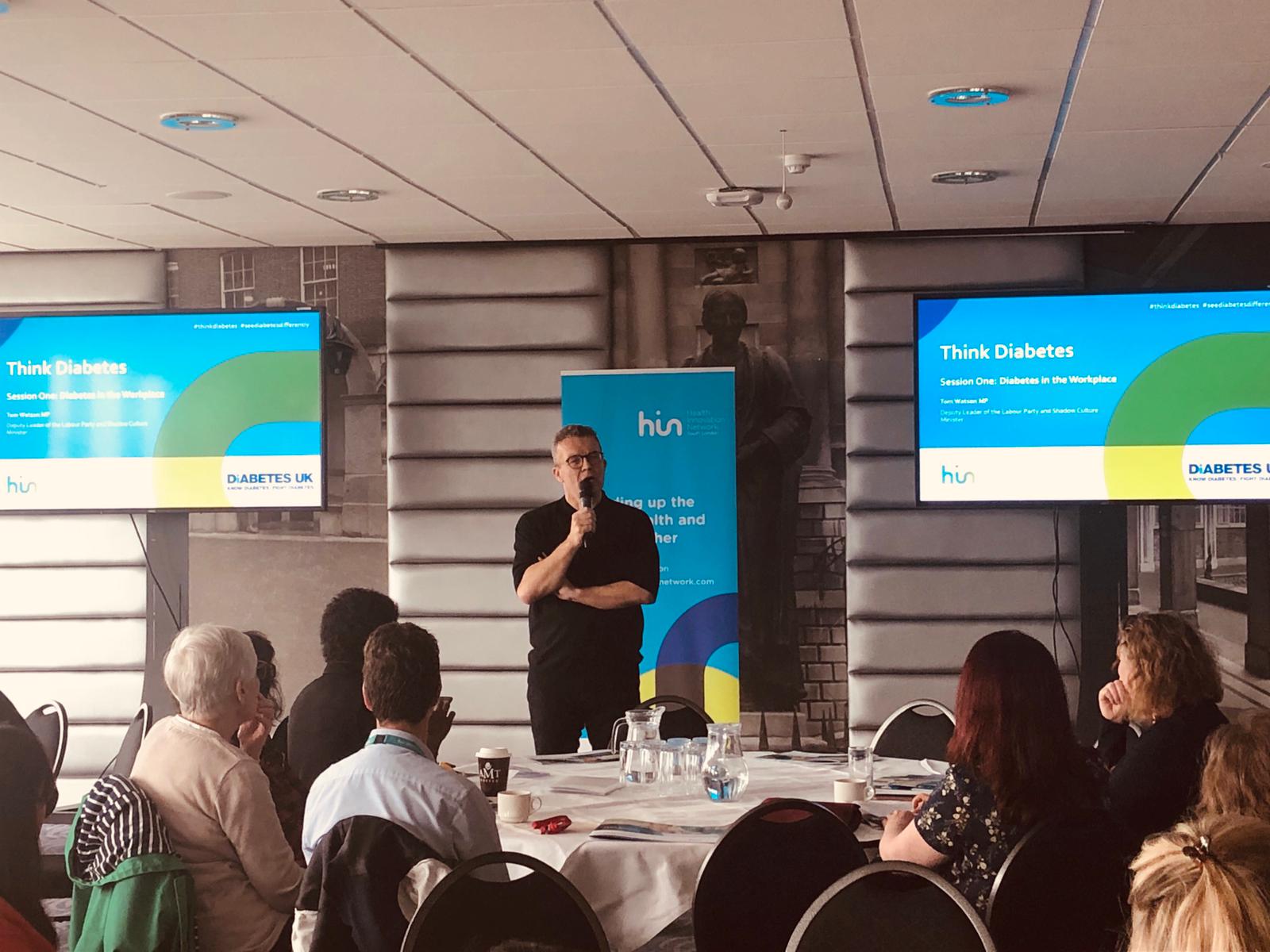Think Diabetes Report calls on London employers to better support staff living with diabetes
London employers are being urged to ‘Think Diabetes’ in the workplace in a new report published by the Health Innovation Network. Figures in the report show a major gap in the number of with people living with Type 1 and Type 2 diabetes attending free educational programmes to help them learn about their condition and live healthier lives.
There were more than 3.1 million people diagnosed with Type 1 and Type 2 diabetes in England in 2017-18 and it is estimated that in London over 671,000 people of working age (over the age of 16) have either Type 1 or Type 2 diabetes. But the Think Diabetes Report shows less than 8 percent of eligible Londoners living with Type 2 diabetes are attending these courses (this figure is less than 9 percent of eligible people across England).
Reasons for people not attending these courses are varied, but previous reports have cited ‘time off work’ as one of the key issues. Given the potential for employers to support staff with health, the Think Diabetes report makes a series of recommendations on how employers can help support their staff to take advantage of the education opportunities available to them, or even provide education for staff themselves.
To celebrate the launch of the report, we partnered with Diabetes UK to deliver the Think Diabetes Summit. The event brought employers, diabetes experts and patients together, to discuss ways in which organisations can support their staff including; running education sessions in the workplace, sharing new digital approaches to education with their teams so staff can complete these courses online and by making sure staff are supported to take time off work for education to help them live with a long-term health condition.
Diabetes is covered by the Equality Act 2010 as a long-term condition that has significant impact on individuals’ lives and employers are therefore obliged to make reasonable adjustments, although these adjustments are not defined. The case for employers adjusting their policies and supporting individuals to attend structured education is overwhelming.

The event was chaired by Dr Neel Basudev, Diabetes Clinical Director of the Health Innovation Network and GP in Lambeth, who said:
“Employers have huge influence over the lives of the working population and a unique opportunity to help with what is arguably the greatest challenge facing our nation’s health: diabetes.
“There are more ways for people to access vital education about diabetes than ever before, with many parts of the NHS innovating with digital courses and new approaches to offer support. We now need to raise awareness of what’s on offer and remove as many barriers as we can. Workplace barriers are some of the simplest to address and changes can be made to support staff that will increase the health and productivity of the workplace.”
As well as hearing from diabetes experts and representatives from the organisations who were case studies in the report, Deputy Leader of the Labour Party and Shadow Culture Minister Tom Watson MP shared how he self-managed his own type 2 diabetes into remission. A passionate advocate for helping people learn to self-manage, he said:
“By changing my diet and lifestyle I’ve put my Type 2 diabetes into remission. I feel fitter, faster, and healthier than ever before and this has given me a new mission to help others get healthy.
“Supporting people who live with diabetes is a major challenge facing our society, and one in which we all have a part to play. Employers in particular can play a key role in supporting people in their journey to learn more about their condition, and how best to manage it.
“It is time employers think differently about diabetes in the workplace and the Think Diabetes Summit is bringing together key leaders from across businesses and organisations to do just that.”

The Think Diabetes Summit was attended by organisations that collectively employ thousands of Londoners. TechUK attended the event and their CEO Julian David said: “techUK represents the companies and technologies that are defining today the world that we will live in tomorrow. I feel passionately that our members should also be leaders in supporting and developing the workforce for the future. Diabetes is an increasing problem in our society and employers should be engaging with innovative ways to help support staff living with Type 1 and Type 2 diabetes to better manage their condition.”
Download the Think Diabetes Report and Toolkit here.
